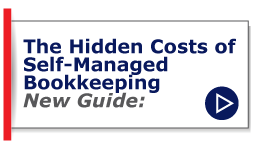
During the 2015 State of the Union speech, President Barack Obama mentioned that the U.S. does not provide all of its working people with paid sick leave. All other advanced nations do so. While federal sick leave laws may be coming, many American states and cities are already putting paid time off (PTO) laws into effect. Indeed, such legal changes could have a significant impact on your business.
If you own and/or manage a business, it's crucial to stay abreast of these rules. The U.S. Department of Labor can provide you with all of the information that you need. In addition, it's helpful to hire an outstanding bookkeeping service. Such an operation can keep track of how much sick time your employees are entitled to under the law, how much reimbursement they're owed, and how many hours of PTO they have taken so far. Therefore, this type of service will help you to ensure that no one abuses the system by taking off too much time.
PTO Accrual Rates Vary
Of course, the specifics of these new PTO regulations vary from place to place. Nevertheless, the descriptions that follow should give you a sense of the stipulations that these laws often include. First of all, under some statutes, employees earn paid sick leave over time. In most parts of California, after working for 30 hours, a person will receive one hour of sick leave. In Connecticut, meanwhile, an employee gets one PTO hour for every 40 hours on the job.
PTO Limitations
At the same time, legislatures frequently cap the number of PTO hours that employees can earn. As a case in point, after California workers obtain 24 PTO hours, their employers can stop giving them sick leave for the rest of the year. Complicating matters, though, is the fact that certain cities in California ― San Francisco and Oakland are among them ― have set different limits as far as how many annual PTO hours an employee can collect.
In many instances, employees must wait a certain length of time before they can use the PTO that they've garnered. For instance, people who work in East Orange, N.J., cannot start using the sick leave that they've acquired until they've been employed by a company for 90 days. Also, if your employees earn tips as well as wages, you most likely won't need to compensate them for the tips that they miss during their time off.
Factoring In Company Size
Further, the size of your company might play a role in this area. That is, you could be exempt from such laws if your business is comprised of fewer than 10 staff members. In Connecticut, employers are free from this obligation if they have fewer than 50 workers. For their part, Massachusetts companies with a maximum of 10 workers must provide each person with 40 hours of sick leave each year, but they don't have to pay those employees when they're out of work. Then again, you might be required to give your staff members paid sick leave no matter how small your business is.
Finally, be aware that PTO laws might not compel your workers to supply you with documentation to prove that they were ill during their sick leave. Take New York City. There, a supervisor can ask an employee for a signed note from a doctor or other healthcare professional if he or she misses more than three days of work in a row. If the person is absent for a shorter period, though, the law doesn't specify that the employer can demand confirmation from a medical provider. Thus, it's possible that people might occasionally miss work for frivolous reasons.














